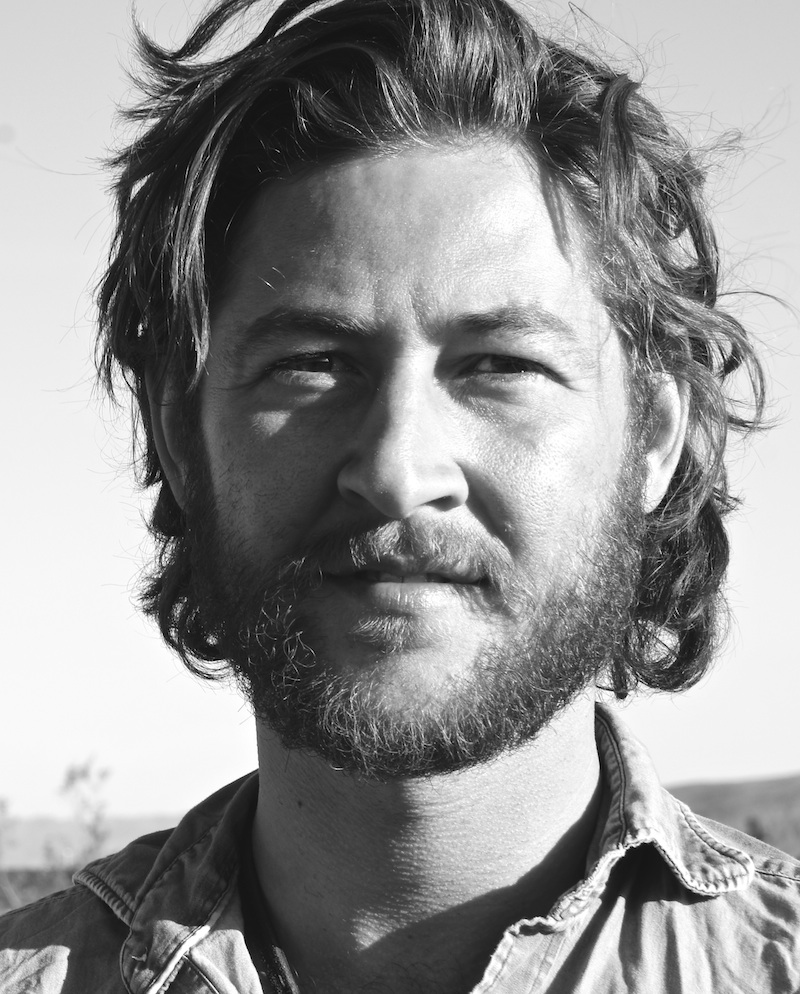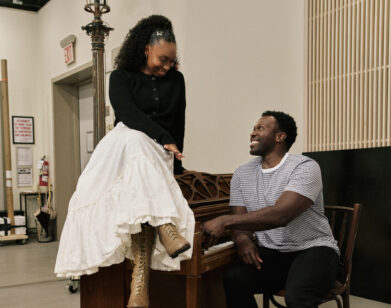Luke B. Goebel’s Chaos Theories

ABOVE: LUKE B. GOEBEL
Luke B. Goebel’s Fourteen Stories None of Them Are Yours (Fiction Collective Two) is a thunderous, fantastical debut novel. Told by a narrator who blends his life with legends of Native Americans, drunks, college professors, and heartbreaking girls, Goebel expertly writes the line between reality and the myths we create in our minds. Goebel’s book is rambling but focused, with a rebel beat intensity and bleeding empathy that is touching without being overly sentimental. From cross country RV trips, to dude ranch debacles, to wild drunk love on the streets of New York City, to firefights in Afghanistan, Goebel’s narrator is driven by deep love for his dead older brother and Catherine, a woman who has become his everything only to leave him with almost nothing. Ultimately Goebel’s novel is about triumph of the spirit, of storytelling, and the hugeness of life and love even after it has abandoned us, leaving us to retell over and over again our heartbreak. We spoke with Goebel about making lives into legends, truths, performance, East Texas, and why love is the ultimate escape.
ROYAL YOUNG: I feel like there’s an American tradition of making lives into legends. Your narrator’s life takes on mythical proportions.
LUKE B. GOEBEL: The book became a brain in a jar talking. The guy has a body, and he appears at times but he desperately wants to talk and tell stories, narrating over changing stories around constructing an identity and persona and performances. Performances are rooted in American tradition. We all know who Elvis is, we have some idea of who he was as a person, but he’s also a character we’re obsessed with. These people are always in a performance. One of the reasons we love them is that we can tell they are devoutly in love with their performance.
YOUNG: Why is the veracity or “Did this happen in real life” question so important to people?
GOEBEL: The narrator has a brother whose name is Carl. I have a brother whose name is Carl. People keep asking me if this in nonfiction and I think, “Are you kidding?” My narrator cuts off a guy’s arm in Afghanistan. Just because we live in the age where you can look everyone up and find out everything about them, we are fascinated by that. I don’t think people were always so concerned with, is this real? People are taken and feel there is something so true in my story and that’s flattering because I am trying to get at what is true and felt and what it is like to live in our universe. But it is fiction because when I wrote it, it was a performance. I was taking on personas and traditions and American identity and I allowed myself to talk to in ways and perform my history and experiences in ways I would never do in nonfiction because I want to have a job and eat and be allowed to show up at the dinner table.
YOUNG: Did any of that performance in writing leak into your everyday actions?
GOEBEL: Yeah, I was hell-bent on proving myself on paper, and this was a beautiful destructive element. I was obsessed with it, but I became a bit of an asshole at times. I was manic for a whole summer. I was driving around with a pistol. I was in an RV. I was crashing into cars. I was trying to have this experience while I was writing the book. And now I’m like, “Who the fuck did I think I was?” I don’t know who wrote that book. Now I’m just kind of cleaning out and trying to get rid of all the bad habits of engaging with those forces.
YOUNG: Letting the persona you are taking on in words affect your personal life.
GOEBEL: Right. And some writers their skills come from a way of listening and being in the world where they have a transpersonal identity, they pick up resonance a lot with different people of all kinds of walks and talks. I very quickly, especially when tired, start to feel like I’m the other person. What keeps it from being sentimental and narcissistic is it’s engaged with bigger concerns of people around me. I’m not fixed to my identity. I’m never quite sure who I am.
YOUNG: Do you think it’s important to know exactly who you are? Or is being so sure about who you are a bad thing?
GOEBEL: Well, I live in East Texas. [laughs]
YOUNG: [laughs]
GOEBEL: So I’m surrounded by people who are so sure of who they are they would die defending that notion. In some ways I really admire people who are having simpler experiences with identity. I have core beliefs and foundations from my family. I grew up a kid in Ohio, seventh generation, and those are deep roots; but the rest of my identity is sort of unhinged and unhooked. I think what keeps people vigorously alive is constant questioning and reimagining and searching.
YOUNG: Do you think that correlates to exploring America? How much of searching for a personal identity relates to the identity of our country?
GOEBEL: Yeah, definitely. I think a lot of who I am and who you are is based on the obsessions of the country. When I look at the history of my life and the great losses and mistakes, a lot of it is tied to an America where you have to make something of yourself, you have to be great, to be wild, fiercely independent, nuts, you have to make a myth out of yourself. Or maybe those are the things I relate to. We don’t have a single identity or creation story we can agree on. Our country is built on the gravesites of Indians, murder, slaughter, slavery, immigrants, conflict, expansion, innovation, imagination, vastness, potential, magnificent land. We’ve built the destruction of the planet but it’s also the wildest show on earth.
YOUNG: How does love drive, poison, and redeem us?
GOEBEL: I’ve always been so fascinated and taken and in love with everyone else. Me, is just sort of this thing I have to keep up so I can keep exploring everyone else. Love gets you free of all that. I love everyone I love in the book, those people are my heart. Love of family, intimate love, love of teachers, love of friends, that’s the relief. That’s the escape from being trapped inside yourself, all of this bullshit of being a neurotic lunatic. I make what I make out of what I live the most.
LUKE GOEBEL’S FOURTEEN STORIES NONE OF THEM ARE YOURS IS OUT TOMORROW, SEPTEMBER 30.






